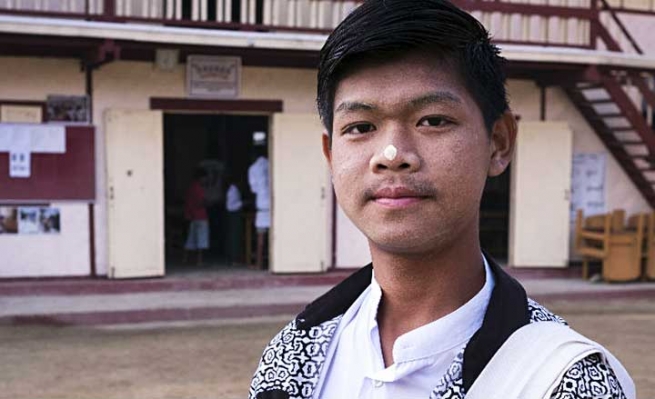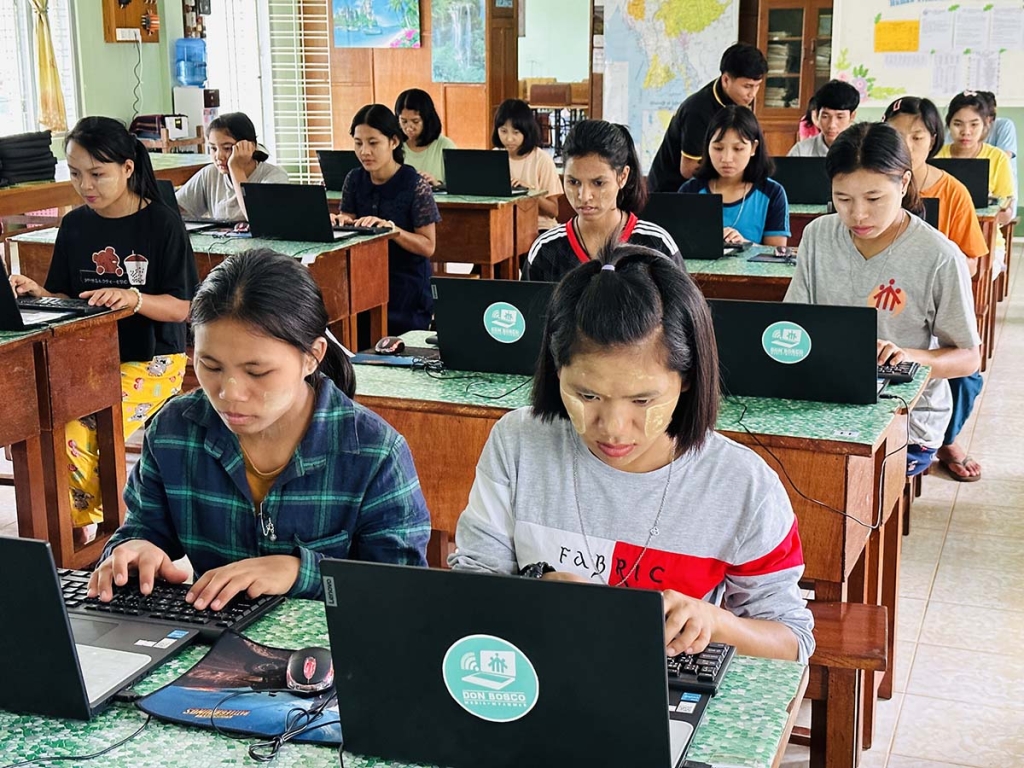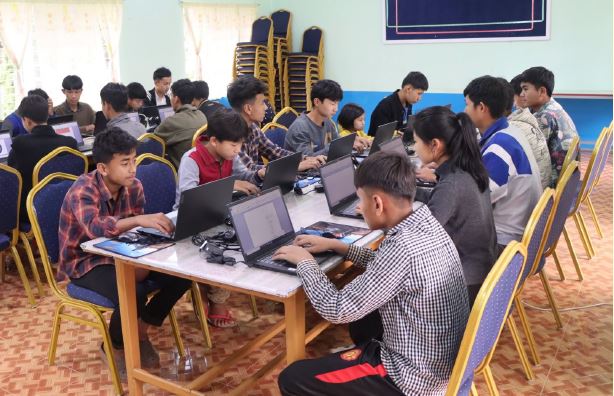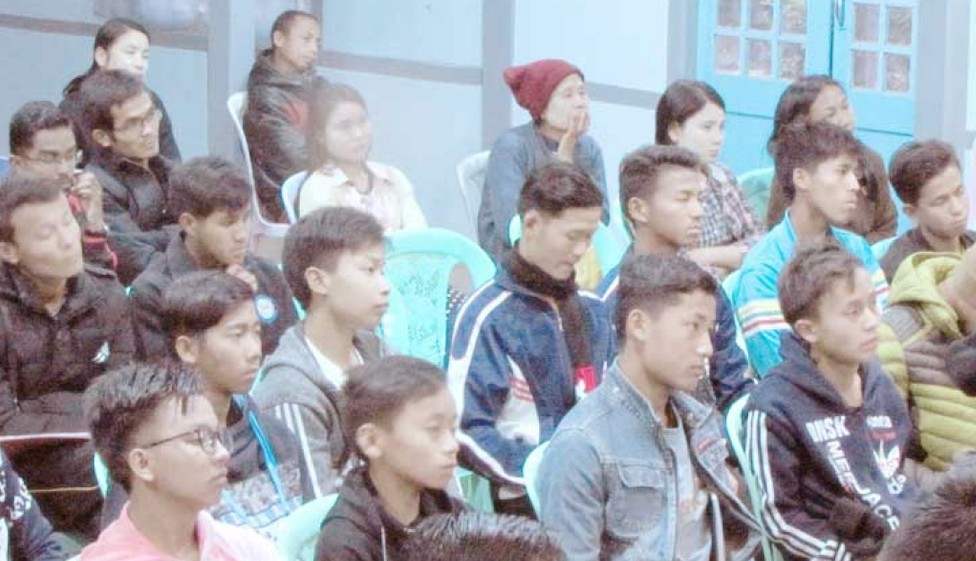MYANMAR: Don Bosco Friend Youth Center Helps Boys Like Maung Zaw Oo Access Shelter and Education

(MissionNewswire) Since 2013, Salesian missionaries have been operating the Don Bosco Friend Youth Center in Mandalay, the second largest city in Myanmar. The center was developed to help youth who are living on the streets access services and education. The facility, which operates 24 hours a day, is directed by Father Peter Myo Khin along with six paid staff. It provides temporary shelter, food, healthcare and formal and non-formal education. Close to 30 boys, aged 4 to 18, live at the center permanently while dozens more access services on a drop-in basis.
Youth living on the streets are often targeted by traffickers, predators and gang recruiters. In order to feed themselves, youth must beg for money and collect bottles and cans to sell. But too often this is not enough. If they are too conspicuous or assertive with their efforts, the police may throw them in jail, where they are locked together in overcrowded cells with no rights.
“Ultimately, the prison system feeds Myanmar’s military,” explains Father Mark Hyde, executive director of Salesian Missions, the U.S. development arm of the Salesians of Don Bosco. “When these homeless and falsely jailed youth reach the age of 16, they are offered a choice to either be released with no money, no job, no education and nowhere to go or join the army, where they will be housed, fed and clothed. It’s a false choice, but one many of them are forced to make.”
Several times each week, outreach workers fan out into the darkest corners of Mandalay’s streets, introducing themselves to the children, working to gain their trust and inviting them to access the youth center’s services. While some youth are able to trust quickly and access services, others take months of convincing.
Maung Zaw Oo is a Burmese boy who has experienced abandonment, loneliness and life on the streets. But thanks to Don Bosco Friend Youth Center he has begun a new life. When he was still a child his parents separated. At age of nine, Maung was accompanied by his mother to live with family friends who owned a tea room in Mandalay. It was supposed to be a temporary solution, but then his mother disappeared, and he was alone with the new family. He stopped studying and started working as a helper in the tea room.
After about a year Maung decided to leave but was forced to live on the streets. He had to struggle just to survive and had to eat what little he found in the garbage. Soon he regretted his choice to live on the streets and was introduced to services at the Don Bosco Friend Youth Center. Maung has now been living with Salesian missionaries and other boys his age for several years. He is no longer alone and has several friends and adults who help ensure he lives a healthy life. In the center, he has time for education, rest, meditation and prayer.
Maung is also now back in school. Not having the necessary certificates, he could not enroll in the state schools, so he attends a Buddhist school near the Salesian center. He is in a class of 25 other students, but there are some classes with up to 100 students. Maung is studying hard, and he likes to study the English language, which he now speaks fluently. He hopes one day to become a tourist guide.
“This is a life-changing program for youth living on the streets in Mandalay,” says Fr. Hyde.“There is an outreach program, which is the first step in helping youth and giving them a better life beyond the streets. Once in the program, the youth center is safe place for the boys where they can access the services and support they need and ensure they gain an education.”
While Myanmar is the second largest country in Southeast Asia and rich in natural resources, it is one of the least developed countries in the world, ranking 148 out of 188 countries according to the 2015 Human Development Report. More than a quarter of Myanmar’s population still lives in poverty with the poverty rate rising sharply to 70 percent for those living in rural areas. Myanmar also has the lowest life expectancy and the second-highest rate of infant and child mortality in the region. Just one-third of the population has access to the electricity grid, and only about half of school age children complete their primary education.
###
Sources:
ANS – Myanmar – A day with Maung Zaw Oo
Salesian Missions – Shining Light on Mandalay’s Homeless Youth
World Bank – Myanmar




